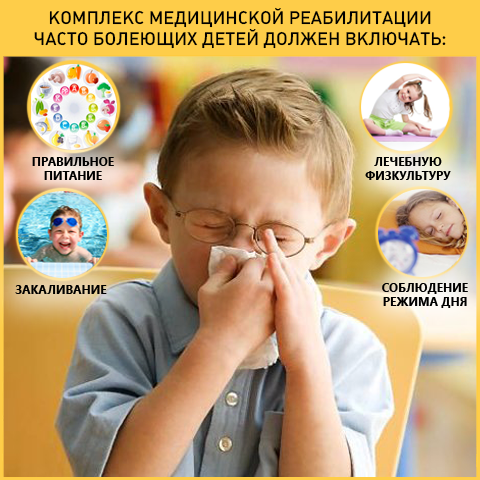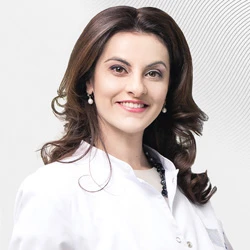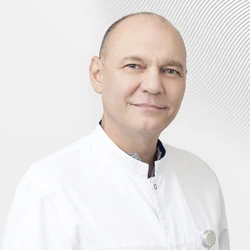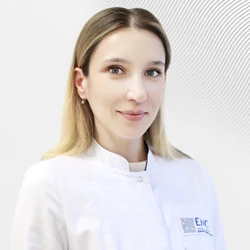Immunity is the main factor in the body's resistance to infections. Its insufficiency leads to a decrease in all protective functions. It is especially worth carefully monitoring the immunity of children who often suffer from acute respiratory diseases.
It is widely believed that the frequency of acute respiratory infections in early childhood (3-5 cases per year per child) is the norm. If a child gets sick more often, he is referred to as a group of frequently ill children. However, this happens if increased susceptibility to respiratory infections is not associated with persistent congenital and hereditary pathological conditions, since the cause of acute respiratory infections is a transient, correctable deviation in the body's defense systems that do not have persistent organic disorders. Simply put, this is a slight disruption of the protective mechanisms of a healthy body.
Risk factors for frequent acute respiratory infections:
| Endogenous (internal) | Exogenous (external) | |
| Prematurity | Intensive circulation of a multitude of respiratory viruses and bacteria in the urban environment |
|
| Morphofunctional immaturity | Unfavorable living conditions | |
| Hypotrophy | Early start of kindergarten visits | |
| Anemia | Environmental violations | |
| Rickets | Irrational therapy | |
| Consequences of perinatal hypoxia (oxygen starvation of the body as a whole, individual organs and tissues) | ||
| Diatheses | ||
| Enzymopathies (pathological changes in enzyme activity) | ||
| Foci of chronic infection |
The complex of medical rehabilitation of frequently ill children should include:
1. Rational daily routine
- It is necessary to exclude activities and games that lead to overwork and overexcitation of the child
- It is advisable to increase the sleep duration by 1-1.5 hours; daytime sleep or rest is mandatory
2. Properly balanced nutrition
- It is necessary to use the optimal amount of proteins, fats, carbohydrates, and mineral salts
- It is mandatory to include fresh vegetables, fruits and berries in the daily diet
3. Tempering
4. Restorative and therapeutic physical education
5. Immunocorrective therapy.

Long-term observations have made it possible to establish that when it comes to uncomplicated infections in young children, especially during the period of adaptation to the children's team, this situation invariably has a favorable development: after a while (usually after 2-3 years), children stop getting sick often. Such conditions are not a manifestation of immune deficiency and do not adversely affect the development of immunity in a child; on the contrary, after infections, children in many cases acquire resistance to a specific pathogen (usually a virus).
Immunological examination should be carried out mainly to exclude primary immune deficiency, in which standard trial immunotherapy may be ineffective, and "frequent acute respiratory infections" may turn out to be a mask of more serious clinical problems. In addition, about 30% of cases of frequent rhinitis and bronchitis in children are associated with allergies. In this case, an allergological examination and treatment are necessary.
At the EMC Dermatology and Allergology Clinic, parents have a great opportunity to conduct a full examination of their child. We will help you find answers to all your questions, provide treatment according to European protocols, and provide interdisciplinary assistance involving pediatricians and other pediatric specialists.
The doctors of the EMC Dermatology and Allergy Clinic work every day and are always ready to help you and your child.
Was this information helpful?
Questions and answers
Ask a Question







.webp)
.webp)
.webp)







